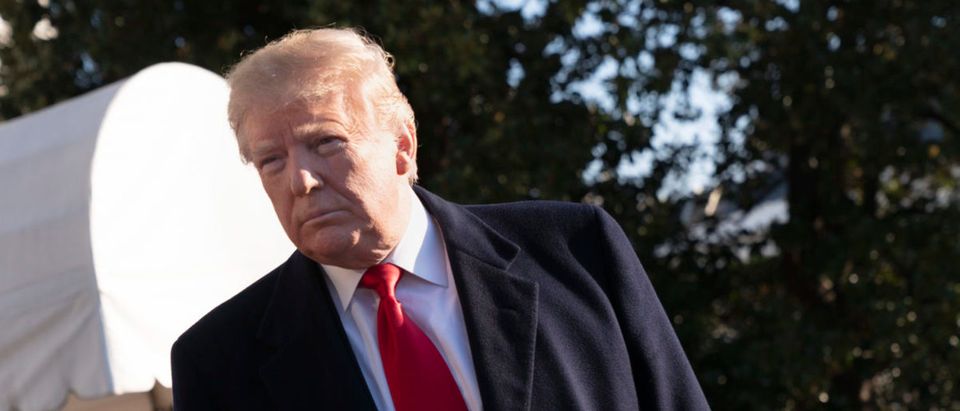- The Steele dossier has remained a subject of intense intrigue and speculation since its publication two years ago on Thursday.
- Republicans claim that much of the salacious document has been debunked while Democrats defend the report as being accurate in its broad allegation that Russia meddled in the 2016 election.
- But the Trump-specific claims in the dossier remain unverified, with some of the claims having come under intense scrutiny.
- This analysis helps make sense of where the dossier stands now.
Two years after its controversial publication, the Steele dossier remains a subject of intense intrigue.
The 35-page report, authored by former British spy Christopher Steele and funded by Democrats, is best known for the vast conspiracy it alleges between the Trump campaign and Russian government during the run-up to the 2016 election. Its salacious claim that the Kremlin has blackmail material on President Donald Trump in the form of a sex tape has also captured public attention.
But even under two years of scrutiny and debate, the dossier remains unverified, at least as far as its core Trump-related allegations are concerned. None of its specific claims about collusion have been verified, and there is ample reason to believe that its main allegation on that front (an alleged trip to Prague by Michael Cohen) is inaccurate.
Nevertheless, Democrats and some pundits have defended the dossier, claiming that while specific allegations of collusion remain unanswered, Steele’s broader claims of Russian meddling have proved accurate.
But that defense elides the basis on which Steele’s report has garnered so much attention. The FBI relied heavily on the dossier because of its specific allegations about Carter Page, a former Trump campaign adviser accused in the dossier of being a back-channel to Kremlin officials for the purposes of disseminating hacked emails and negotiating the relaxation of sanctions against Russia.
Here is where the dossier stands two years after BuzzFeed infamously published it. The 17 memos of the dossier are dated between June 20, 2016 and Dec. 13, 2016.
June 20, 2016
“The Russian authorities had been cultivating and supporting US Republican presidential candidate, Donald Trump for at least 5 years.”
- Unsubstantiated. Trump has adamantly denied receiving any help from the Russian government.
“The Kremlin had been feeding Trump and his team valuable intelligence on his opponents, including Democratic presidential candidate Hillary Clinton, for several years.”
- Unsubstantiated. The Trump campaign has denied receiving help from the Kremlin during the campaign. But the date of this Steele memo — June 20 — is significant because it followed 11 days after the now-infamous Trump Tower meeting attended by Donald Trump Jr., Jared Kushner, campaign chairman Paul Manafort and a group of Russian lobbyists. Trump Jr. accepted the meeting after he was offered damaging information about Clinton, but he claims that no such information was provided.
- One Trump aide, George Papadopoulos, met during the campaign with a professor named Joseph Mifsud who claimed to have learned that Russians had “dirt” on Clinton in the form of “thousands” of her emails. But Papadopoulos claims he was not offered the material and did not handle Clinton documents. He has since served a 12-day prison sentence for lying to the FBI about the timing of his contacts with Mifsud.
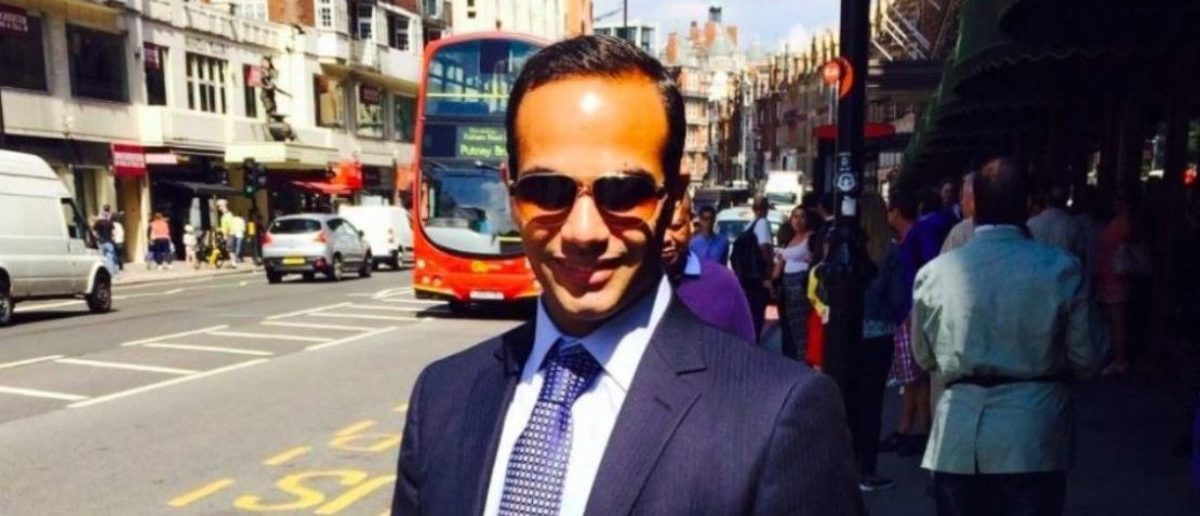
Former Trump campaign adviser George Papadopoulos is pictured. (Photo: LinkedIn)
“The Kremlin’s cultivation operation on Trump had also comprised offering him various lucrative real estate development deals in Russia.”
- Unsubstantiated. Trump and his personal attorney, Cohen, did negotiate to build a Trump Tower Moscow through at least June 2016, but it is not clear whether that was an attempt to cultivate either Trump or Cohen. Cohen pleaded guilty in the special counsel’s investigation on Nov. 29, 2018 to lying to Congress in 2017 about the extent of his negotiations to build a Trump Tower in Russia. He spoke with an assistant to Kremlin official Dmitry Peskov.
Russians sought to “exploit Trump’s personal obsessions and sexual perversions to obtain suitable ‘kompromot’ [compromising material] on him.” Kremlin operatives filmed Trump in compromising positions in a Moscow hotel.
- Unsubstantiated. In a press conference just after BuzzFeed published the dossier on Jan. 10, 2017, Trump called the sex allegations “phony stuff.” After two years, no evidence has emerged to support the allegation. Glenn Simpson, the founder of Fusion GPS, has reportedly voiced skepticism in private about Sergei Millian, one of the alleged dossier sources for the claim. And Rob Goldstone, a music publicist who was with Trump during his visit to Moscow, has told The Daily Caller News Foundation that he doubts Trump had enough time to engage in the type of activity described by Steele. Michael Isikoff, a journalist who met with Steele prior to the 2016 election, has also cast doubt on the claim.
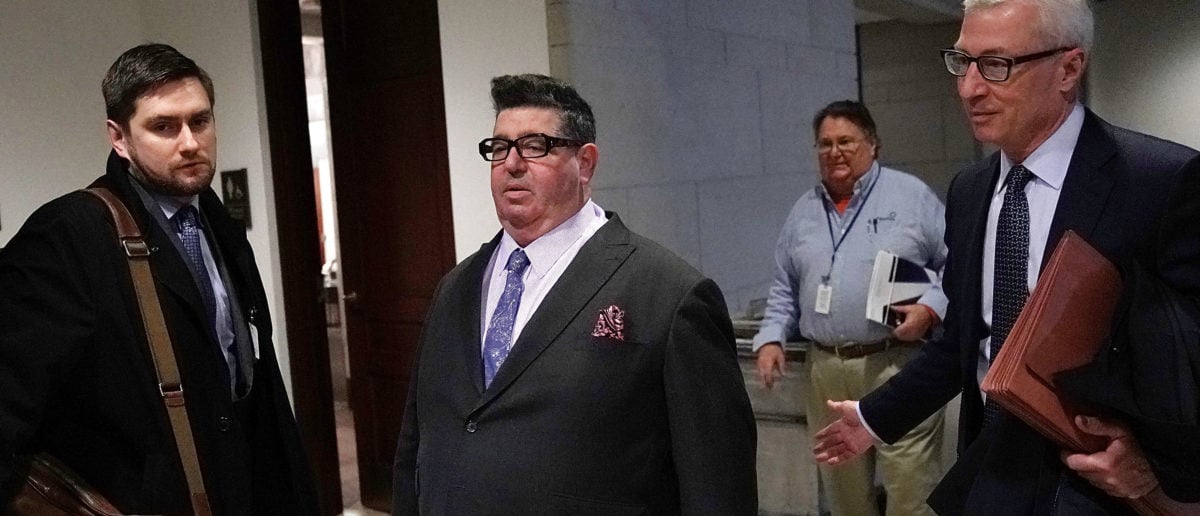
British publicist Rob Goldstone (2nd L) arrives at a closed-door meeting with House Intelligence Committee on Dec. 18, 2017 on Capitol Hill in Washington, D.C. (Photo by Alex Wong/Getty Images)
“The Clinton dossier was controlled exclusively by chief Kremlin spokesman, Dmitry Peskov, who was responsible for compiling/handling it on the explicit instructions of Putin himself.”
- Unsubstantiated. While U.S. intelligence officials do believe that Russian President Vladimir Putin was directly involved in the campaign meddling — a claim that the Kremlin denies — no evidence has been produced showing that Peskov personally handled the project. Some Russia observers have questioned why Putin’s chief spokesman would be in charge of the collusion operation.
July 19-30
“There was a well-developed conspiracy of co-operation between [the Trump campaign] and the Russian leadership.”
- Unsubstantiated. Trump and his campaign have adamantly denied the allegation. Numerous Trump associates had contacts with Russians, but so far none of those contacts involved attempts to influence the election.
“This was managed on the Trump side by the Republican candidate’s campaign manager, Paul Manafort, who was using foreign policy advisor, Carter Page, and others as intermediaries.”
- Unsubstantiated. Both Manafort and Page say they do not know each other. Page, who served in a small volunteer role on the campaign, has also never met Trump. He has repeatedly denied the allegations against him in the Steele document, which he calls the “dodgy dossier.”
“The Russian regime had been behind the recent leak of embarrassing e-mail messages, emanating from the [Democratic National Committee], to the WikiLeaks platform.”
- True. The CIA, FBI, National Security Agency and the Office of the Director of National Intelligence all agree that Russian operatives hacked DNC emails and used WikiLeaks as a cutout to make them public.
“The operation had been conducted with the full knowledge and support of Trump and senior members of the campaign team.”
- Unsubstantiated. Trump and his campaign have denied the allegation, and no evidence has been released that supports the collusion claim.
“Russian diplomatic staff in key cities like New York, Washington and Miami were using the emigre ‘pension’ distribution system as cover.”
- Unsubstantiated. While this dossier claim has not been proved, it has been reported that U.S. investigators are looking into whether a pension system that the Russian government uses to pay soldiers living abroad was used as cover to finance covert actions during the presidential campaign. What is not known is whether investigators began looking into that independent of the dossier or whether Steele’s reports prompted the probe.
July 19
Igor Sechin, a crony of Putin and the CEO of Russian oil giant Rosneft, met secretly with Page during a trip that the Trump campaign adviser made to Moscow in early July 2016. Sechin allegedly brought up the possibility of removing Ukraine-related sanctions against Russia, which Page allegedly “reacted positively” to. Page also met secretly with senior Kremlin official Igor Divyekin.
- Unsubstantiated. Page did visit Moscow during the time that the dossier claims. But the visit, where Page gave a speech at the New Economic School, had been revealed in the press by the time Steele made this allegation. Page has denied ever meeting Sechin and Divyekin, though he has spoken positively about the former and said he would be honored to meet him one day.
- Page did meet in Moscow with the head of investor relations for Rosneft.
“An intelligence exchange had been running between [the Trump team and Kremlin] for at least 8 years.”
- Unsubstantiated. No evidence has been produced to support this claim, and the Trump campaign has denied it.
“Putin’s priority requirement” in the information exchange with Trump world was to obtain information about Russian oligarchs and their families. Trump and his associates supplied the information.
- Unsubstantiated. Neither the Russian government nor Trumpworld has addressed the claim.
“The Kremlin had more intel on Clinton and her campaign.”
- True. At the time the memo was written, Russian operatives had already hacked into the email account of Clinton campaign chairman John Podesta. WikiLeaks would begin publishing those hacked emails in October 2016. U.S. intelligence officials have said that there is ample evidence pointing to Russia being behind the hacks.
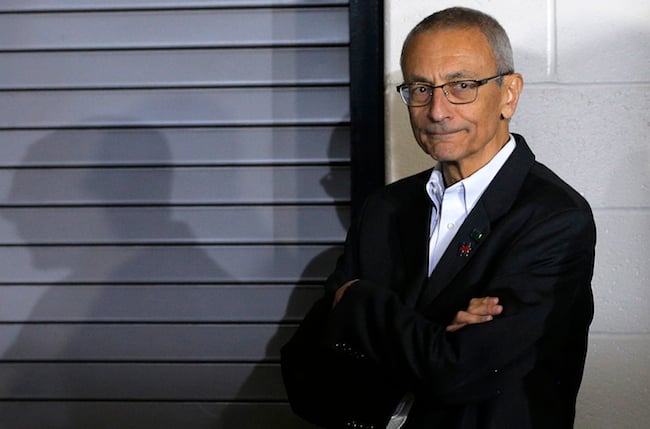
Campaign chairman John Podesta watches from the edge of the stage during a campaign rally with Democratic presidential nominee Hillary Clinton (not pictured) at Heinz Field in Pittsburgh, Pennsylvania, Nov., 2016. REUTERS/Brian Snyder
Aug. 10
Page “conceived and promoted” the idea of releasing hacked DNC emails through WikiLeaks.
- Unsubstantiated. Page has denied allegations in the dossier. He has also not faced charges in the special counsel’s probe.
Sept. 14
“The Kremlin had further ‘kompromat’ on candidate Clinton and had been considering releasing this via ‘plausibly deniable’ channels after the Duma (legislative) elections were out of the way in mid-September.”
- True. WikiLeaks would begin releasing Podesta emails a month after Steele wrote this claim in the dossier.
Russian diplomat Mikhail Kalugin was withdrawn from Washington at short notice because of his “heavy involvement in the US presidential election operation.” Kalugin took part in the veterans’ pension “ruse” to help fund the active measures campaign.
- Partially True. Kalugin was called back from Washington, D.C., at the time the dossier claims he was. But he denied to McClatchy that he was involved in paying any operatives to influence the election. McClatchy also reported that the FBI was investigating whether Russia’s intelligence agency, the FSB, used a pension system for former Russian soldiers to disguise payments for hackers who targeted the campaign. The status of that investigation is unclear.
Sept. 14
Trump participated in sex parties in St. Petersburg, Russia, and paid bribes to make the stories “disappear.” Azerbaijani-Russian billionaire Aras Agalarov would know the details.
- Unsubstantiated. Trump does know Agalarov. They partnered on a deal to host the 2013 Miss Universe pageant in Russia. The Agalarov family was also involved in the June 9, 2016 Trump Tower meeting. It was set up at the request of Agalarov’s son, Emin Agalarov.
Oct. 20
“Clandestine meeting between … Trump’s lawyer Michael Cohen and Kremlin representatives in August 2016.” The meeting took place in Prague.
- Likely false. Cohen vehemently denied the allegation as recently as Dec. 27, following a report from McClatchy that cellphone evidence shows that Cohen’s phone pinged off of a tower in Prague. Cohen’s denial has carried some weight because he has already cooperated extensively with the special counsel. Washington Post reporter Greg Miller also claimed in October 2018 that FBI and CIA official said that the Cohen-Prague claim was likely not true. Cohen has also been sentenced in the special counsel’s investigation, but was not charged with crimes related to campaign-related hacking. (RELATED: Government Source Says Trump’s Personal Lawyer Was Not In Prague)
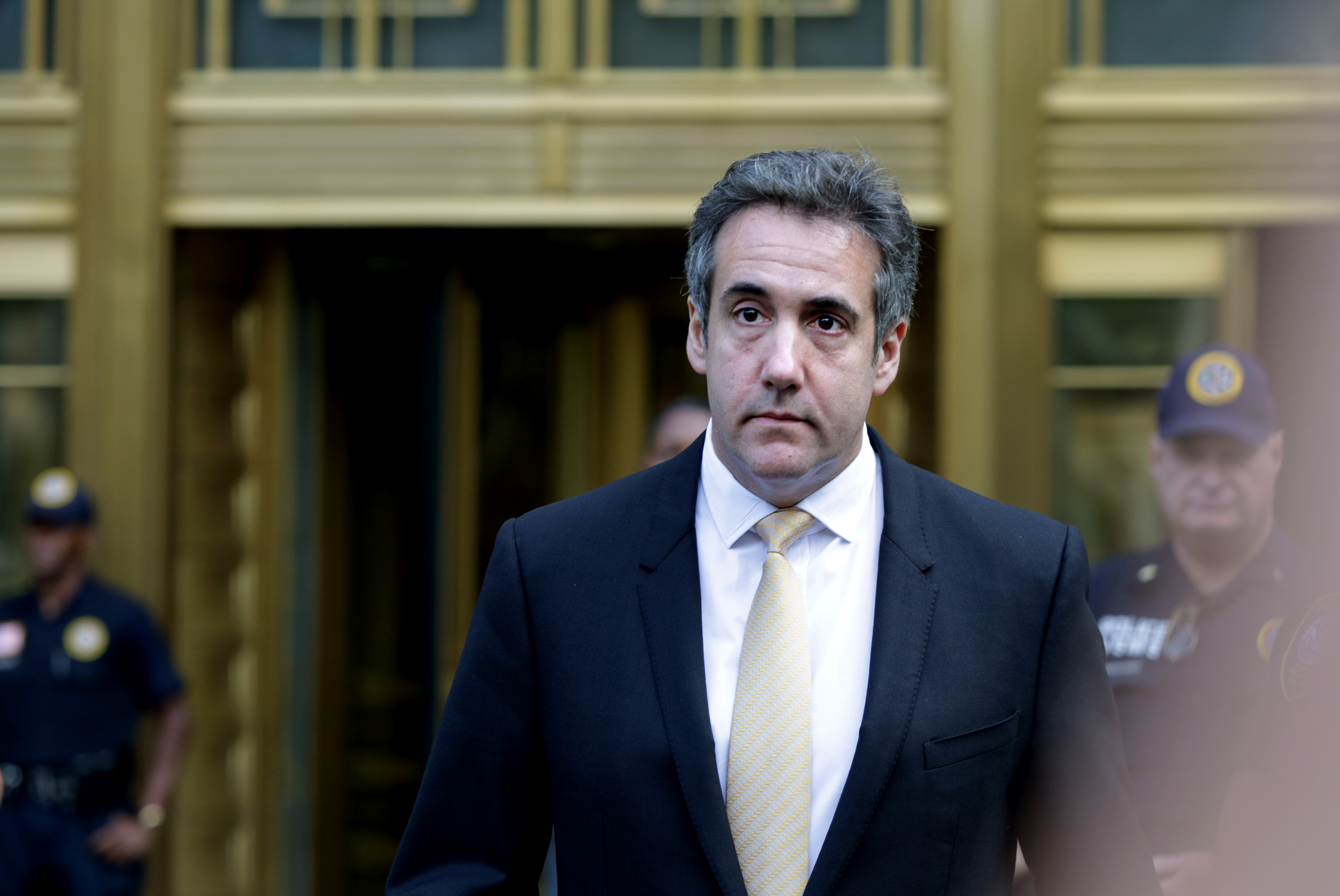
Michael Cohen is pictured. (Photo by Yana Paskova/Getty Images)
A Kremlin-controlled cultural exchange group called Rossotrudnichestvo “was being used as cover for this relationship and its office in Prague may well have been used to host the Cohen meeting/s.”
- Unsubstantiated. In addition to Cohen’s denial that he was in Prague, there has been no evidence produced that Rossotrudnichestvo was involved in helping the Trump campaign.
“Konstantin Kosachev (head of the Foreign Relations Committee) is an important figure in the Trump campaign-Kremlin liaison operation.”
- Unsubstantiated. Kosachev has denied involvement.
Mid-October
Rosneft CEO Sechin offered Page a 19 percent brokerage stake on a deal involving the Russian oil giant in return for getting sanctions lifted if Trump was elected president. Page expressed interest in the proposal.
- Unsubstantiated. Page has denied ever meeting Sechin or being offered a brokerage deal for Rosneft.
Dec. 13
“A company called XBT/Webzilla and its affiliates had been using botnets and porn traffic to trasmit viruses, plant bugs, steal data and conduct ‘altering operations’ against the Democratic party leadership. Entities linked to one Aleksej Gubarev were involved and he and another expert, both recruited under duress by the FSB, Seva Kapsugovich, were significant players in this operation.”
- Unsubstantiated. Gubarev sued BuzzFeed and Steele for publishing the dossier containing this allegation. BuzzFeed later apologized to Gubarev and redacted his name from the dossier, but a judge ruled in the website’s favor on Dec. 19. (RELATED: Ex-Spy Who Wrote Trump Dossier Says Some Claims In It Are Unverified)
- McClatchy has also reported that Kapsugovich appears to have been in prison when the dossier claims he was involved in the hacking scheme.
- Steele acknowledged in April 2017 in a court filing in London, where he was sued by Gubarev, that the Dec. 13 memo had not been verified.
All content created by the Daily Caller News Foundation, an independent and nonpartisan newswire service, is available without charge to any legitimate news publisher that can provide a large audience. All republished articles must include our logo, our reporter’s byline and their DCNF affiliation. For any questions about our guidelines or partnering with us, please contact licensing@dailycallernewsfoundation.org.


